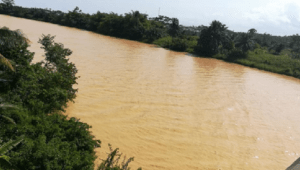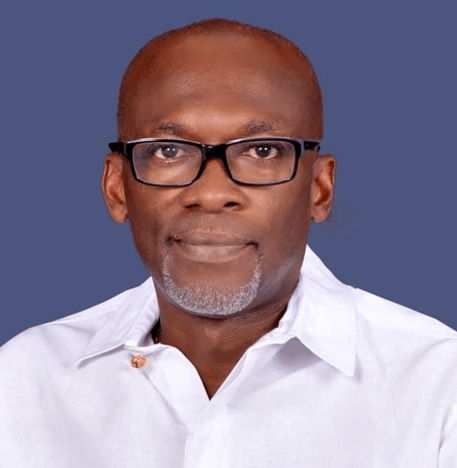By Peter Martey AGBEKO (APR)
In the heart of West Africa, Ghana has long been celebrated as a beacon of democracy and peace. But beneath this shining image lies a growing threat—one that transcends politics, tribe, and class: the rapid disappearance of good, clean water.
The looming water crisis, if left unchecked, could ignite the kind of instability that no political manifesto, peacekeeping effort, or foreign intervention can easily resolve.
Across the country, rivers that once teemed with life now run brown with silt, polluted by the devastating impact of illegal mining (galamsey) and unregulated human activity. The Pra, Offin, Tano, Ankobra, and Birim rivers—lifelines for millions of Ghanaians—are shadows of their former selves.
These rivers, poisoned by mercury and other chemicals, are no longer safe for drinking, farming, or fishing. The situation is so dire that communities once sustained by these water bodies now rely on tanker services, imported sachet water, or distant sources to meet basic needs.
Ghana’s two dominant political parties, the National Democratic Congress (NDC) and the New Patriotic Party (NPP), together with all other political actors and stakeholders, must confront this existential crisis with the urgency it demands. This is not just an environmental issue; it is a human survival issue, an economic issue, and, most critically, a security issue.
The history of other nations offers a sobering warning: when people are deprived of water, chaos follows. Water scarcity has sparked conflicts in the Middle East, contributed to uprisings in sub-Saharan Africa, and destabilised regions across the globe. Ghana is not immune.
The Brewing Danger
Water is the thread that binds every aspect of our lives. It sustains our agriculture, powers our energy, and ensures public health. When this thread frays, society unravels. Already, the signs are clear:
- Health Risks: Communities relying on polluted water sources face rising cases of waterborne diseases such as cholera, diarrhea, and dysentery. Mercury contamination from galamsey has also led to severe health complications, including long-term neurological damage.
- Economic Strain: Farmers who depend on river water for irrigation are watching their livelihoods dry up. Fishermen can no longer rely on rivers for a catch. Industries, too, are feeling the pinch, as clean water becomes scarce and expensive.
- Social Tensions: In some regions, disputes over access to water have already led to violence. As the crisis deepens, such conflicts could spiral into larger, more destructive confrontations.
A Call to Action for Political Actors
Ghana’s political leaders must take decisive action—not in 2028 or 2032, but now. If NDC and NPP leaders fail to rise above partisan rivalries to address this crisis, they risk presiding over a country that may no longer be at peace.
- Prioritise Environmental Protection in Manifestos: Water protection must become a cornerstone of every political party’s platform. This is not just about winning votes; it is about ensuring the survival of Ghana itself.
- Enforce Laws Against Galamsey: Successive governments have made promises to clamp down on illegal mining, but enforcement has been lackluster. Political will is crucial to shut down illegal mining operations and hold perpetrators accountable, regardless of their affiliations.
- Invest in Water Infrastructure: Ghana needs sustainable investments in water treatment plants, waste management systems, and renewable energy to reduce reliance on harmful activities like galamsey.
- Educate and Mobilise Communities: Awareness campaigns should empower citizens to protect water bodies and demand accountability from their leaders. Faith-based organisations, traditional rulers, and community groups must all play a role.
A Shared Responsibility
This is not just a task for politicians; every Ghanaian has a role to play. From reducing waste to participating in tree planting efforts to reporting illegal mining, individuals can make a difference. However, the responsibility ultimately lies with the political leadership. They must recognise that water is not a partisan issue—it is a lifeline that unites us all.

The Price of Inaction
The consequences of ignoring this crisis are unthinkable. Without clean water, Ghana’s hard-earned peace and stability could crumble. In the scramble for survival, political parties may lose the very thing they seek to govern: a united, functional nation.
Let this be a clarion call to the NDC, NPP, and all political actors: Ghana is at a crossroads. The decisions made today will determine whether future generations live in a thriving, peaceful country or a land torn apart by thirst, disease, and conflict.
The time to act is now. Ghana’s water crisis is not a distant threat; it is here, and it is real. If our leaders fail to confront it, history will judge them not by the number of elections they won but by the legacy of destruction they left behind.
Ghana deserves better. Our rivers deserve better. Let us rise to the challenge, together.










